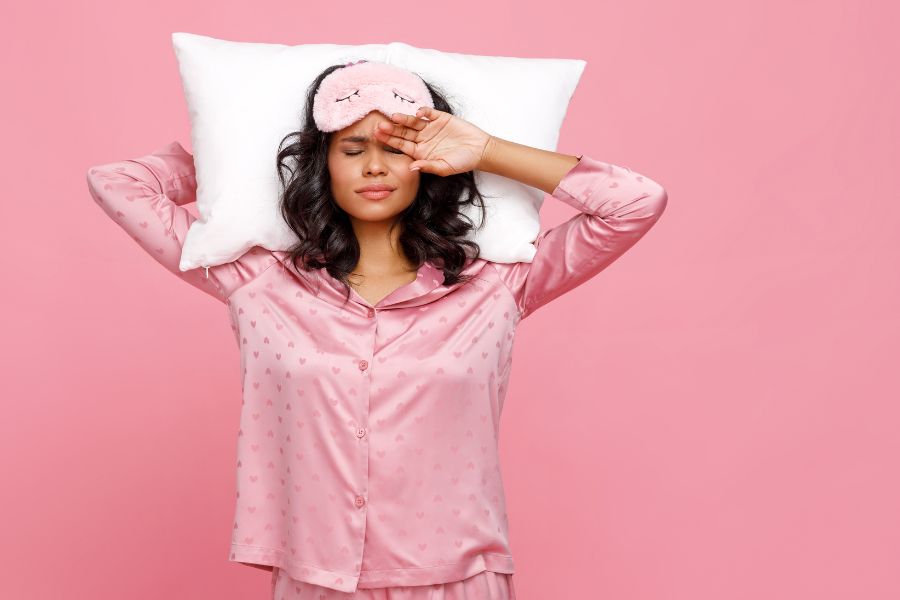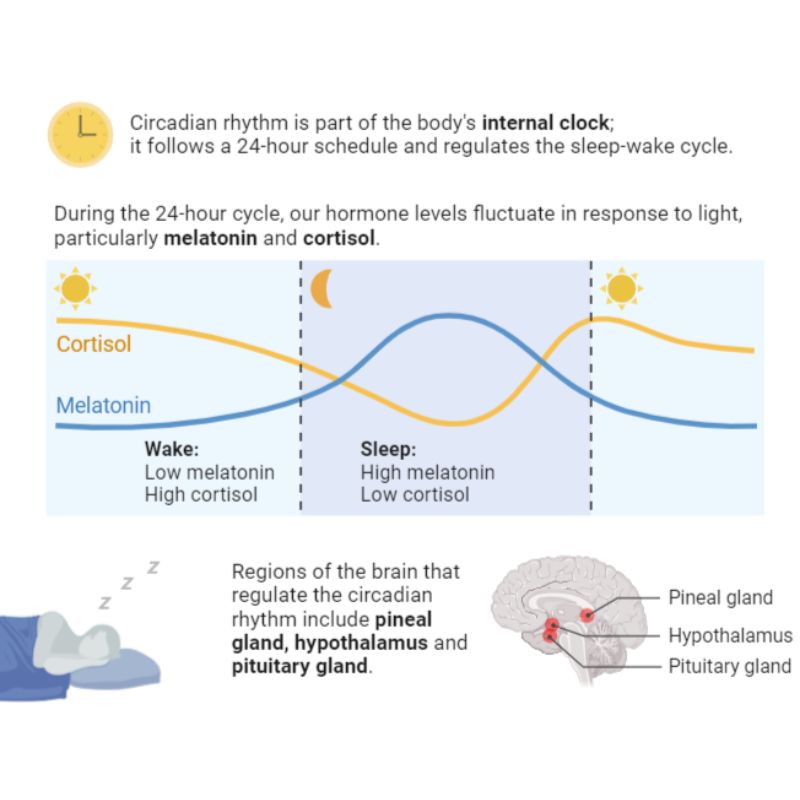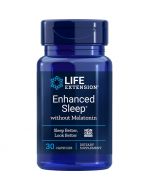
What is Sleep Syncing? Are there any benefits?
What is Sleep Syncing?
Sleep syncing is the process of aligning your body’s circadian rhythm or body clock with your daily routine.
The Circadian Rythm
Your circadian rhythm is an internal biological process that regulates our sleep-wake cycle and various physiological functions throughout a 24-hour period. It is often referred to as our ‘body clock’. The term ‘circadian’ comes from the Latin words ‘circa’ meaning around and ‘diem’ which means day, indicating that it operates on a roughly 24-hour cycle.
The circadian rhythm is primarily influenced by external cues, with the most prominent on being the natural light-dark cycle of the Earth. Other factors that can affect our circadian rhythm include social and behavioural cues, such as mealtimes, physical activity and regular sleep schedules.
The suprachiasmatic nucleus (SCN), a tiny region in the brain’s hypothalamus, acts as the master pacemaker of the circadian rhythm. It receives information about light exposure through the eyes and sends signals to various parts of the body, coordinating the timing of biological processes and helping to align them with the external environment.
Disruptions of our circadian rhythm, such as shift work, jet lag or irregular sleep patterns, can have negative impacts on our sleep quality, mood, cognitive function and overall health. Maintaining a constant sleep schedule, exposure to natural light during the day, and practicing good sleep hygiene are important for keeping our circadian rhythms in sync and producing optimal sleep-wake patterns.

How to practise sleep syncing:
If you are having problems with your circadian rhythm and this is therefore starting to affect your sleep, it may be time to give sleep syncing a go.
There are a few methods to try in order to fix your circadian rhythm:
Stick to a constant sleep schedule:
Establish a regular sleep routine by going to bed and waking up at the same time every day, including weekends. Consistency helps regulate your body’s internal clock.
Create a sleep friendly environment:
Make sure your bedroom is dark, quiet and cool. Use blackout curtains or eye masks to block out light, earplugs or white noise machines to minimise noise disruptions, and adjust the temperature to a comfortable level.
Limit exposure to bright light before bed:
Reduce exposure to bright lights, including electronic devices like smartphones, tablets and computers before bedtime. The blue light emitted by these devices can suppress the production of melatonin, a hormone that helps regulate sleep.
Increase exposure to natural light:
Get exposure to natural light during the day, especially in the morning. Sunlight helps regulate your circadian rhythm and promotes alertness during the day, making it easier to fall asleep at night.
Avoid stimulants close to bedtime:
Limit or avoid consuming caffeine, nicotine and alcohol, particularly in the evening. These substances can interfere with sleep and disrupt your circadian rhythm.
Establish a relaxing bedtime routine:
Engage in calming activities before bed, such as reading, taking a warm bath. Practicing relaxation techniques like deep breathing or meditation, or listening to soothing music. Establishing a consistent wind-down routine signals to your body that it’s time to prepare for sleep.
Be mindful of your diet and exercise:
Eating a balanced diet and engaging in regular physical activity can promote better sleep and help regulate your circadian rhythm. However, its best to avoid intense exercise close to bedtime., as it can be stimulating.
Manage stress levels:
High levels of stress can disrupt sleep patterns. Practice stress management techniques, such as mindfulness, journalling, or talking to a supportive friend or professional, to help reduce stress levels and promote better sleep.
Benefits of Sleep Syncing:
In short, yes it does work. There have been multiple studies done on the efficacy of a regular circadian rhythm on various problems such as fertility and metabolism. When you align your circadian rhythm you are more likely to experience the following:
- Improved sleep quality: A well-aligned circadian rhythm helps you fall asleep more easily, stay asleep throughout the night and wake up feeling refreshed and energised.
- Enhanced alertness and performance: A synchronised circadian rhythm promotes optimal alertness and cognitive function during the day, leading to improved focus, concentration and overall performance.
- Mood Stability: Disruptions to the circadian rhythm, such as irregular sleep patterns or sleep deprivation, can contribute to mood swings irritability and an increased risk of mental health issues. Restoring your circadian rhythm can help stabilise your mood and promote emotional well-being.
- Increased energy and vitality: Proper sleep-wake timing regulated by a well-functioning circadian rhythm can boost your energy levels throughout the day, reducing feelings of fatigue and lethargy.
- Better Physical Health: Maintaining a healthy circadian rhythm is linked to various aspects of physical health, including a stronger immune system, improved metabolism, better hormone regulation, and a reduced risk of chronic conditions such as obesity, diabetes and cardiovascular disease.
- Enhanced mental health: A stable circadian rhythm can contribute to better mental health outcomes by supporting a regular sleep schedule, which is crucial for emotional regulation, stress management, and overall psychological well-being.
Product Recommendations:
If you are trying to improve your circadian rhythm but struggle falling asleep, here are some products that can help:
Magnesium: Essential mineral that plays a role in helping relaxation and calming the nervous system. Magnesium supplements may reduce anxiety and improve sleep quality.
L-Theanine: An amino acid found in tea leaves that promotes relaxation and reduces stress. L-Theanine supplements can improve sleep quality and induce a calm state.
Chamomile: A herb known for tis calming properties. Chamomile supplements or teas may help relax the mind and promote better sleep.
5-HTP: A compound that is involved in the production of serotonin, a neurotransmitter that regulates mood and sleep. 5-HTP supplements may improve sleep quality and duration.
Lavender: A popular herb known for its calming and soothing effects. Lavender supplements or essential oil can promote relaxation and better sleep.
Key Takeaways:
- Sleep syncing refers to aligning your circadian rhythm with your daily routine, which proves to have a large impact on our sleep as well as various other bodily processes.
- Creating and maintaining a solid sleep schedule can help to regulate your circadian rhythm.
- There are supplements and products out there which can help if you are really struggling to sleep.














